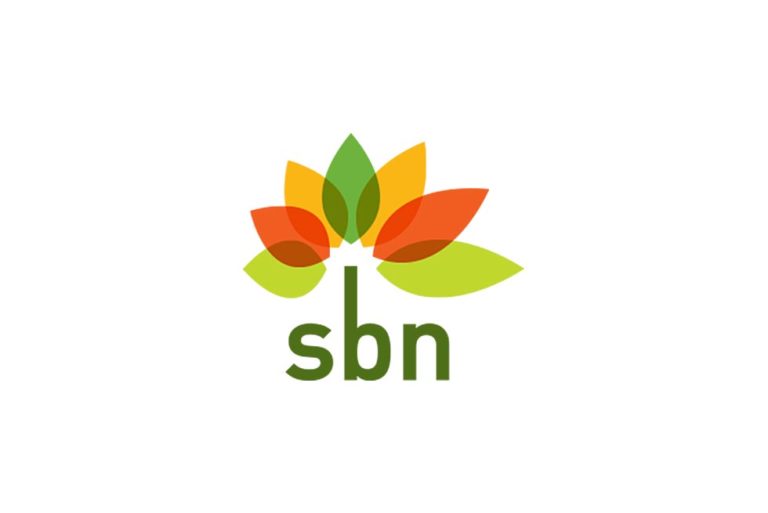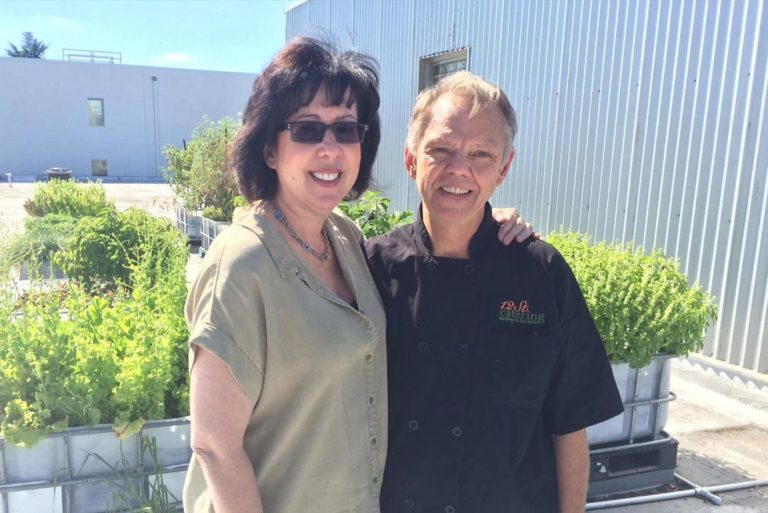A few years before retiring from the role of global sustainability director at FMC, an agricultural sciences company based in Philadelphia, Linda Froelich was invited to co-teach a course on corporate sustainability in the University of Pennsylvania’s Master of Environmental Studies (MES) program. “I had been thinking about teaching when I retired,” she says, “so it was a good opportunity to see if it was something that I liked and if I was any good at it.”
The course went well, and before the semester was over, she was invited to develop a second course for the MES program on sustainable agriculture.
Now retired from her corporate role, Linda still teaches two courses with the Penn MES program: ENVS 5220 Sustainable Agriculture and Product Stewardship, which dives into global food production, addressing challenges around topics such as food security, and ENVS 6530 Corporate Sustainability Strategies, which covers how to develop and manage a sustainability program at a company that will have real, measurable impact.
The broad field of sustainability, Linda points out, is still young and evolving. (“Sustainability was barely even a word when I was in school,” she jokes, let alone an entire course topic.) So, she is always adapting her syllabi to stay current with sustainability issues, technologies, and best practices. On the first day of each course, she surveys her students for any fresh topics that they would like to cover. In the current semester’s sustainable agriculture course, Linda reports, students want to learn more about resilient and regenerative agriculture. “Sometimes there’s a topic I’m not all that familiar with myself,” she says, “so I have to go do research, and I learn, too.”
Her courses, she has found, attract students with diverse professional experiences and concerns. In addition to the MES program, students have come from Penn Design, Wharton, and Penn Carey Law, with interests ranging from urban farming to marketing to fashion. And when students come from different disciplines, Linda says, “they ask different types of questions and have different opinions,” which spurs lively class debates. Looking at problems and solutions through different lenses helps the students, and Linda herself, experience different ways of thinking. “Sometimes,” she muses, “I think I learn more from them than they do from me.”
Of course, her students have much to gain from the coursework as well as from Linda’s vast practical experience in sustainability. She spent her entire corporate career out of college with FMC, where she learned about agricultural sustainability and how to build an impactful sustainability program firsthand. “I always had a passion for stewardship and safety—to help ensure that farmers were safe, that food was safe—and I had the courage of my convictions,” she says of her career trajectory.
In 2009 she was offered the newly created role of product stewardship director to work with growers around the world on the responsible use of the company’s agricultural products. The following year, she joined FMC’s new sustainability committee to help develop a company-wide sustainability program. It wasn’t long before she was promoted to global sustainability director—a role she held proudly for seven years until her retirement. “I told people I had the best job in the company. I got to work with everybody, from the shop floor to the CEO, making a positive difference for the corporation and for growers around the world.”
Now, at Penn, Linda has the chance to share her experiences with the next generation of sustainability leaders as well as students with different career ambitions. “Corporate sustainability is a great stepping stone for other career moves,” Linda advises, because of the breadth and depth of experience you gain within one company. “Then you can move on to something more specific, whether it’s precision agriculture, corporate communications, procurement, sales, or marketing.”
A career-focused curriculum is important to Linda. “I don’t want these classes to be pure academic exercises. You’ve got to be able to apply what you’re learning,” she says. She peppers her lectures and class discussions with anecdotes from her own experiences, offers practical career advice, and encourages all of her students to do an internship during their studies.
And in addition to covering the hard facts of sustainability, Linda’s courses stress essential soft skills. “All of my students are very intelligent, very technical people,” she says, “and I explain to them that’s the basis for what you need to get in the door.” But to get your seat at the table and persuade leadership to make real change, she explains, “you also have to be able to work on a team, communicate, negotiate, and be flexible.” Assignments like group projects, presentations, and class discussions help sharpen these skills.
Over the past few decades, Linda has seen huge progress toward sustainability, with companies and governments across the globe choosing to commit to meaningful environmental goals. And in the face of the challenges ahead to fully achieve those goals, she’s inspired by the commitment she sees in her students. “They’re hardworking and they’re idealistic, which is a good thing because we need those kinds of ideals to hold ourselves accountable and get where we need to go.”
The skills and support from Linda’s courses add to that idealism, giving her students a stronger sense of agency to implement sustainable solutions in their careers. “I tell my students if they’re told ‘no’ the first time, go do more research and come back again,” she says. “Don’t give up. Persevere. Because people’s opinions on sustainability start to change; they get more educated. And you can educate them.”




